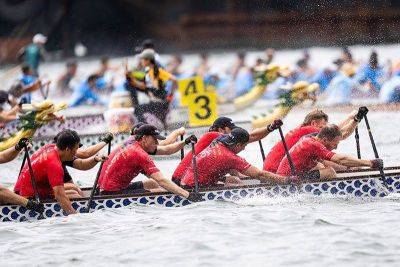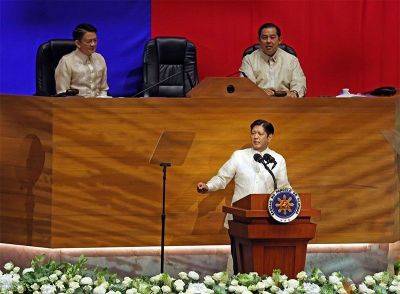‘Friendly opposition’
Vietnam filed on July 18 a claim with the United Nations (UN) for an extended continental shelf (ECS) in the South China Sea. Actually, Vietnam was just following the lead taken a month ago by the Philippines, which first initiated this. The Vietnamese Foreign Ministry announced their submission that seeks also to reaffirm Vietnam’s sovereign claims over the Hoang Sa (Paracel) and Truong Sa (Spratly) archipelagos spread out in the South China Sea (SCS).
But China insists on its nine-dash line claim almost over the entire SCS, including parts claimed by Brunei, Malaysia, Taiwan, the Philippines and Vietnam. Like the Philippines, China is among the signatory-countries to the UN Convention on the Law of the Sea (UNCLOS). In the disputed overlapping maritime claims at the SCS, Vietnam had established some 48 outposts; the Philippines and China have eight each; Malaysia has five and Taiwan has one.
In his acceptance speech at the Republican National Convention where he was officially nominated as its presidential candidate in the coming November elections, former US president Donald Trump warned that “a growing specter of conflict hangs over Taiwan, Korea, the Philippines and all of Asia.” And the common denominator of the feared “conflict” obviously is China.
China’s nine-dash line claim, however, had already been ruled invalid on July 12, 2016 by the UN Permanent Court of Arbitration under the International Law of the Sea (ITLOS). The Arbitral Court effectively upheld the maritime claims of the Philippines covering our archipelagic 200-mile exclusive economic zone (EEZ). It was thus named the West Philippine Sea (WPS) in accordance with the ruling of The Hague-based Arbitral Court.
Regarded as a “strategic waterway,” an estimated $3 trillion worth of trade passes annually through the SCS. It is also believed to be rich in oil and natural gas deposits, aside from fish and several seafood stocks, corals and other valuable marine resources. Thus, it is not surprising China continues to ignore and defy the Arbitral Court ruling. The Philippine victory remains full backed by many, if not all, countries around the world.
Eight years after this victory, the Philippines







